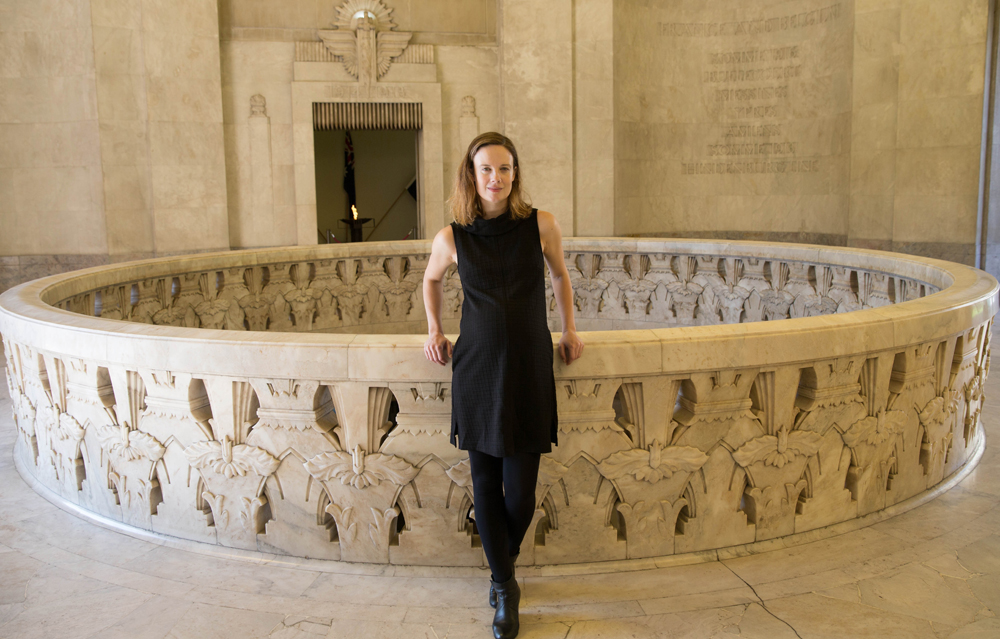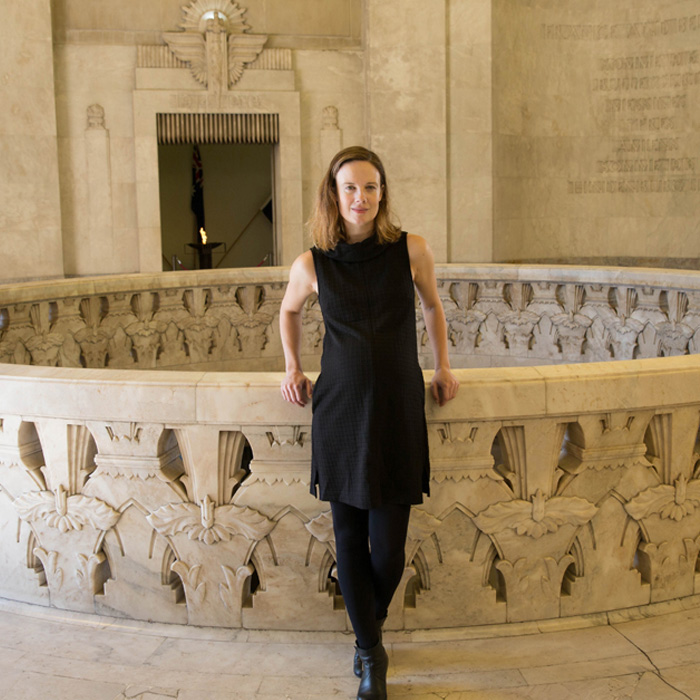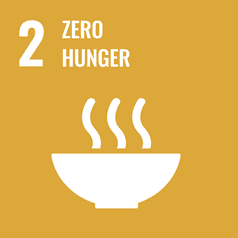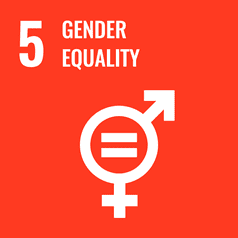
Assoc Prof Elizabeth Roberts-Pedersen
Associate Professor
School of Humanities, Creative Ind and Social Sci (History)
The world of war and psychiatry
Historian Dr Elizabeth Roberts-Pedersen is developing the first comprehensive account of the consequences of World War Two for psychiatric theory and practice.

There has been a lot written about the impact of World War One on the history of psychiatry – especially shell shock and the emergence of post-traumatic stress disorder. However, there is surprisingly little on the impact of World War Two on the practice of psychiatry – particularly the sort of patients it brought into view.
During her three-year project funded by a 2016 Australian Research Council (ARC) Discovery Early Career Researcher Award, Elizabeth will delve into the historical documentation of patients such as combatants, POWs, survivors of the holocaust and children separated from their parents during World War Two to uncover the conflict’s effect on modern day psychiatry.
The theory and practice of psychiatry changed dramatically across the course of the 20th century. In this period the profession moved from being a marginal specialty centred on the asylum to become a central fixture of contemporary life, intertwined with state structures and popular culture.
This project will generate the historical context for World War Two’s seminal role in the influence of psychiatry in the post-war world as well for contemporary concerns about war trauma and the prevalence of post-traumatic stress disorder more broadly.
“…over time symptoms are not only interpreted differently, but can also appear to present in greater or lesser degrees in different conflicts, and have different meanings for both patients and clinicians.
The idea for the project, titled, ‘Unquiet Minds: Psychiatry in World War Two and its aftermaths’, has been percolating in Elizabeth’s mind since her PhD nine years ago.
“My PhD was on British volunteers in a series of wars in Europe in the 19th and 20th centuries – one of these was the Spanish Civil War and there was this passing remark by an American Commissar to the effect that, ‘Our men are not going to get shell shock in this war because they are committed to the cause and they are motivated,’” she recalls.
“That comment lodged in the back of my mind, because it changed my perception of combat stress syndromes as timeless and unchanging. In fact culture and circumstance play a large role in how symptoms are perceived, described and understood.
“It’s interesting that over time symptoms are not only interpreted differently, but can also appear to present in greater or lesser degrees in different conflicts, and have different meanings for both patients and clinicians. The ‘flashbacks’ of post-traumatic stress disorder do not appear in the literature on shell shock, for example.
“One thing I am hoping to do in this project is investigate how the interactions between psychiatrists and certain cohorts of patients can generate a kind of feedback loop, with clinical encounters producing a certain kind of literature in medical journals, which then informs subsequent clinical encounters and popular understandings of wartime syndromes.”
An energetic and talented early career researcher, Elizabeth has published widely on the social and cultural history of modern warfare, including her book Freedom, Faction, Fame and Blood: British Soldiers of Conscience in Greece, Spain and Finland and key journal papers on sexual violence in wartime and war neurosis. Other persisting interests are régimes of discipline and punishment in the armed forces, gender and war, memorialisation and, now, the use of psychiatry during wartime.
Over the next three years, Elizabeth will combine archival research into official and personal papers with a close reading of medical periodicals, major metropolitan newspapers and existing scholarship on the case studies available. As part of this, she will travel to archives in the UK, the US, and Canberra and Melbourne in Australia.
The project will culminate with a monograph, a series of journal articles, and a conference planned for the end of the project to bring together those interested in war and psychiatry.
Elizabeth is also the newest member of the University of Newcastle’s Centre for the History of Violence – which has attracted over $2.5 million of ARC funding since 2012, including a 2014 ARC Discovery Project (DP) on ‘Violence on the Australian Colonial Frontier’; a 2014 Future Fellowship investigating ‘War, Violence, and Apocalyptic-Millenarianism in the Middle East’; and a 2015 ARC DP on ‘Intimacy and Violence in Anglo Pacific Rim Colonial Societies 1830-1930’.
“I’m really excited to be part of the Centre for the History of Violence. I think it’s great that the University has been able to bring together scholars working on the impact of violence in various contexts and I’m really looking forward to talking with others who are interested in similar issues. In some ways, we are all working on the lived experience of warfare and violence, but in different time periods – so we can see continuities as well as the differences.”
The world of war and psychiatry
Dr Elizabeth Roberts-Pedersen is developing the first comprehensive account of the consequences of World War Two for psychiatric theory and practice.
Career Summary
Biography
Elizabeth Roberts-Pedersen is an ARC DECRA Fellow in the Centre for the History of Violence, where she is researching the impact of World War Two on the theory and practice of psychiatry. She was previously a Lecturer in History at Western Sydney University (2010-2015).
Elizabeth’s research focuses on the cultural and social histories of warfare in the modern world and, increasingly, the broader history of psychiatry, psychiatric patients and treatment regimes. Her doctoral thesis (University of Sydney, 2007) examined the experience of British volunteers in the Greek War of Independence, the Spanish Civil War and the Russo-Finnish War. This became the book Freedom, Faction, Fame and Blood (Sussex Academic Press, 2010). She has also published on wartime psychiatry and therapeutics, and sexual violence and the courts-martial system in the Second AIF.
Her current ARC-funded project, ‘Unquiet Minds: Psychiatry in World War Two and its aftermaths’, aims to provide the first comprehensive account of the consequences of that conflict for psychiatric theory and practice by focusing on the ways in which the stringencies of total war forged new patient cohorts on the battlefield and the home front and thus implicated psychiatry in the social and economic projects of the post-war world.
Qualifications
- Doctor of Philosophy, University of Sydney
Keywords
- History of medicine
- History of psychiatry
- History of warfare
Fields of Research
| Code | Description | Percentage |
|---|---|---|
| 500203 | History and philosophy of medicine | 50 |
| 430323 | Transnational history | 25 |
| 439999 | Other history, heritage and archaeology not elsewhere classified | 25 |
Professional Experience
UON Appointment
| Title | Organisation / Department |
|---|---|
| Associate Professor | University of Newcastle School of Humanities, Creative Ind and Social Sci Australia |
Academic appointment
| Dates | Title | Organisation / Department |
|---|---|---|
| 7/3/2010 - 31/1/2016 | Lecturer | Western Sydney University Australia |
Publications
For publications that are currently unpublished or in-press, details are shown in italics.
Highlighted Publications
| Year | Citation | Altmetrics | Link | ||
|---|---|---|---|---|---|
| 2010 |
Roberts E, "Freedom, Faction, Fame and Blood" British Soldiers of Conscience in Greece, Spain and Finland, Sussex Academic Press, 284 (2010)
|
||||
| 2018 | 'Special Issue: The Entanglements of Europe', ( issue.3 pp.367-463): Wiley-Blackwell (2018) | ||||
| 2018 | 'Special Issue: Trauma and Its Histories in Australasia', ( issue.2 pp.1-153): Australian Society for the History of Medicine (2018) |
Book (3 outputs)
| Year | Citation | Altmetrics | Link | |||||
|---|---|---|---|---|---|---|---|---|
| 2025 |
Roberts-Pedersen E, Making Mental Health: A Critical History, Routledge, Abingdon, Ox, 186 (2025) [A1]
|
Open Research Newcastle | ||||||
| 2025 |
Roberts-Pedersen E, 'Making Mental Health: A Critical History' (2025) [A1]
|
Open Research Newcastle | ||||||
| 2010 |
Roberts E, "Freedom, Faction, Fame and Blood" British Soldiers of Conscience in Greece, Spain and Finland, Sussex Academic Press, 284 (2010)
|
|||||||
Chapter (13 outputs)
| Year | Citation | Altmetrics | Link | |||||
|---|---|---|---|---|---|---|---|---|
| 2025 |
Sijpkes P, Roberts-Pedersen E, 'Student evaluation of online teaching and learning', 187-198 (2025)
|
|||||||
| 2024 |
Roberts-Pedersen E, 'Introduction', Making Mental Health, Routledge 1-13 (2024)
|
|||||||
| 2024 |
Roberts-Pedersen E, 'Walls', Making Mental Health, Routledge 14-36 (2024)
|
|||||||
| 2021 |
Roberts-Pedersen E, Dwyer P, 'Steven Pinker, Norbert Elias and the 'Civilizing Process'', 87-104 (2021) [B1]
|
Open Research Newcastle | ||||||
| 2021 |
Roberts-Pedersen E, 'POWs into Citizens: Repatriation, Gender and the Civilian Resettlement Units in Great Britain', 101-121 (2021) [B1]
|
Open Research Newcastle | ||||||
| 2014 |
Roberts-Pedersen EJ, ''The Outrage in Miri': Sex, Race and Violence and the Second AIF in Sarawak' (2014)
|
|||||||
| Show 10 more chapters | ||||||||
Journal article (14 outputs)
| Year | Citation | Altmetrics | Link | ||||||||
|---|---|---|---|---|---|---|---|---|---|---|---|
| 2025 |
Ariotti K, Roberts-Pedersen E, 'Prisoner of war pathology in Changi, 1942–1945', Medical Journal of Australia, 222, 125-129 (2025) [C1]
|
||||||||||
| 2022 |
Roberts-Pedersen E, 'Towards a (bio)cultural history of the brain?', HISTORY AUSTRALIA, 19, 151-160 (2022) [C1]
Histories of ideas about the brain, and of the brain itself, are relevant for historians studying mental health and madness. This review article outlines the developmen... [more] Histories of ideas about the brain, and of the brain itself, are relevant for historians studying mental health and madness. This review article outlines the development of the concept of 'neurohistory', its potential applications and pitfalls, as well as the benefits of engaging critically with neuroscience.
|
Open Research Newcastle | |||||||||
| 2021 |
Hobbins P, Roberts-Pedersen E, 'Accident Conscious: Accounting for Flying Accidents in the Royal Australian Air Force during the Second World War', WAR IN HISTORY, 28, 608-634 (2021) [C1]
|
Open Research Newcastle | |||||||||
| 2020 |
McPhillips K, Salter M, Roberts-Pedersen E, Kezelman C, 'Understanding trauma as a system of psycho-social harm: Contributions from the Australian royal commission into child sex abuse', Child Abuse and Neglect, 99, 1-12 (2020) [C1]
|
Open Research Newcastle | |||||||||
| 2018 |
Roberts-Pedersen E, 'Introduction: Trauma and its Histories in Australia', HEALTH AND HISTORY, 20, 1-9 (2018) [C1]
|
Open Research Newcastle | |||||||||
| 2018 |
Webster A, Roberts-Pedersen E, 'The entanglements of Europe: History, geography, identity', Australian Journal of Politics and History, 64 367-377 (2018) [C1]
Europe is a continent of extraordinary variety and diversity geographically, ethnically, nationally, culturally, economically and politically. Yet at the same time all ... [more] Europe is a continent of extraordinary variety and diversity geographically, ethnically, nationally, culturally, economically and politically. Yet at the same time all its parts are and always have been so deeply linked by their destiny that this continent can accurately be described as a single albeit complex political entity. Anything crucial in any area of human endeavour occurring anywhere in Europe always has had both direct and indirect consequences for our continent as a whole. The history of Europe is, in fact, the history of a constant searching and reshaping of its internal structures and the relationship of its parts. Today, if we talk about a single European civilization or about common European values, history, traditions, and destiny, what we are referring to is more the fruit of this tendency toward integration than its cause.
|
Open Research Newcastle | |||||||||
| 2016 |
Roberts-Pedersen E, 'The Hard School: Physical Treatments for War Neurosis in Britain during the Second World War', SOCIAL HISTORY OF MEDICINE, 29 611-632 (2016) [C1]
|
Open Research Newcastle | |||||||||
| 2015 |
Elizabeth Roberts-Pedersen, 'Impelled to Reminiscence: Millais Culpin, Military Psychiatry, and the Politics of Therapy', Health and History, 17 1-16 (2015) [C1]
|
Open Research Newcastle | |||||||||
| 2014 |
Roberts-Pedersen E, 'Damage: The 'war Neurotic' Serviceman Comes Home', History Australia, 11 82-101 (2014) [C1]
While the figure of the 'shell-shocked' veteran of the First World War is a customary archetype in histories of that conflict, the soldier suffering from &apo... [more] While the figure of the 'shell-shocked' veteran of the First World War is a customary archetype in histories of that conflict, the soldier suffering from 'war neurosis' in the aftermath of the Second World War is a less familiar character in accounts of that era. Yet as I argue in this article, in the Australian context medical and popular ideas about the 'war neurotic' serviceman¿in particular, the notion that he was irreparably psychologically damaged and socially maladjusted¿serve as a useful index of broader anxieties about the process of postwar repatriation and notions of home in the immediate postwar years. This article has been peer-reviewed.
|
||||||||||
| 2012 |
Roberts-Pedersen E, 'A weak spot in the personality? Conceptualising "war neurosis" in british medical literature of the second world war', Australian Journal of Politics and History, 58 408-420 (2012) [C1]
Through an analysis of leading British medical journals during the Second World War, this article argues that psychiatric understandings of the "war neurosis"... [more] Through an analysis of leading British medical journals during the Second World War, this article argues that psychiatric understandings of the "war neurosis" suffered by British servicemen during that conflict were predicated on a notion of the "neurotic serviceman" as an objective personality type predisposed to break down during the strain of wartime. By discounting the effects of traumatic war experiences in favour of an aetiology that located the genesis of psychiatric disorder within the inherently unstable individual, such an approach minimized the influence of the martial environment in favour of heredity and the events of early childhood as the ultimate arbiters of mental stability in service personnel. © 2012 The Author. Australian Journal of Politics and History © 2012 School of History, Philosophy, Religion and Classics, School of Political Science and International Studies, The University of Queensland and Blackwell Publishing Asia Pty Ltd.
|
Open Research Newcastle | |||||||||
| Show 11 more journal articles | |||||||||||
Media (3 outputs)
| Year | Citation | Altmetrics | Link | ||
|---|---|---|---|---|---|
| 2019 |
Roberts-Pedersen E, 'Violence and Its Histories Podcast', (2019)
|
||||
| 2015 |
Roberts-Pedersen EJ, 'From Shell Shock to PTSD: Proof of War's Traumatic History', (2015)
|
||||
| 2014 |
Roberts-Pedersen EJ, 'Foreign Fighters Test the State's Monopoly on Violence', (2014)
|
Other (2 outputs)
| Year | Citation | Altmetrics | Link |
|---|---|---|---|
| 2018 | 'Special Issue: The Entanglements of Europe', ( issue.3 pp.367-463): Wiley-Blackwell (2018) | ||
| 2018 | 'Special Issue: Trauma and Its Histories in Australasia', ( issue.2 pp.1-153): Australian Society for the History of Medicine (2018) |
Review (5 outputs)
| Year | Citation | Altmetrics | Link | |||||
|---|---|---|---|---|---|---|---|---|
| 2019 |
Roberts-Pedersen E, 'Mental Health in Asia and the Pacific: Historical and Cultural Perspectives', JOURNAL OF PACIFIC HISTORY (2019)
|
Open Research Newcastle | ||||||
| 2018 |
Roberts-Pedersen E, 'The Invisible Injured: Psychological Trauma in the Canadian Military from the First World War to Afghanistan', SOCIAL HISTORY OF MEDICINE (2018)
|
|||||||
| 2017 |
Roberts-Pedersen EJ, 'Waltraud Ernst (ed.), Work, Psychiatry and Society, c.1750-2015 (2017)
|
|||||||
| Show 2 more reviews | ||||||||
Grants and Funding
Summary
| Number of grants | 11 |
|---|---|
| Total funding | $524,778 |
Click on a grant title below to expand the full details for that specific grant.
20221 grants / $5,000
Hunger and Power in the Age of Plenty, 1945 - 2000$5,000
Funding body: College of Human and Social Futures | University of Newcastle
| Funding body | College of Human and Social Futures | University of Newcastle |
|---|---|
| Scheme | CHSF - Pilot Research Scheme: Projects, Pivots, Partnerships |
| Role | Lead |
| Funding Start | 2022 |
| Funding Finish | 2022 |
| GNo | |
| Type Of Funding | Internal |
| Category | INTE |
| UON | N |
20213 grants / $57,800
A Century of Sex and the Australian Military, 1914-2020$45,800
Funding body: ARC (Australian Research Council)
| Funding body | ARC (Australian Research Council) |
|---|---|
| Project Team | Associate Professor Elizabeth Roberts-Pedersen, Prof Noah Riseman, Dr Tristan Moss, Dr Alana Piper |
| Scheme | Discovery Projects |
| Role | Lead |
| Funding Start | 2021 |
| Funding Finish | 2023 |
| GNo | G2100312 |
| Type Of Funding | C1200 - Aust Competitive - ARC |
| Category | 1200 |
| UON | Y |
Unquiet Minds: Psychiatry in World War Two and its aftermaths – College cash support$10,000
Funding body: College of Human and Social Futures | University of Newcastle
| Funding body | College of Human and Social Futures | University of Newcastle |
|---|---|
| Scheme | CHSF |
| Role | Lead |
| Funding Start | 2021 |
| Funding Finish | 2022 |
| GNo | |
| Type Of Funding | Internal |
| Category | INTE |
| UON | N |
CHSF Working Parents Research Relief Scheme$2,000
Funding body: College of Human and Social Futures | University of Newcastle
| Funding body | College of Human and Social Futures | University of Newcastle |
|---|---|
| Scheme | CHSF - Working Parents Research Relief Scheme |
| Role | Lead |
| Funding Start | 2021 |
| Funding Finish | 2021 |
| GNo | |
| Type Of Funding | Internal |
| Category | INTE |
| UON | N |
20201 grants / $20,000
Faculty funding for external engagement in 2020 - Centre for 21 Century Humanities$20,000
Funding body: Faculty of Education and Arts, University of Newcastle
| Funding body | Faculty of Education and Arts, University of Newcastle |
|---|---|
| Project Team | Dr J McINtyre (Director); Dr K Ariotti; A/Prof G Arrighi; Dr H Askland; Dr J Coffey; A/Prof N Cushing; E/Prof H Craig; Dr E Roberts-Pedersen et al |
| Scheme | Faculty funding |
| Role | Investigator |
| Funding Start | 2020 |
| Funding Finish | 2020 |
| GNo | |
| Type Of Funding | Internal |
| Category | INTE |
| UON | N |
20182 grants / $5,175
Violence by Numbers$3,600
Funding body: Centre for 21st Century Humanities, University of Newcastle
| Funding body | Centre for 21st Century Humanities, University of Newcastle |
|---|---|
| Scheme | C21CH 2018 Projects |
| Role | Lead |
| Funding Start | 2018 |
| Funding Finish | 2018 |
| GNo | |
| Type Of Funding | Internal |
| Category | INTE |
| UON | N |
Violence and its histories podcast$1,575
Funding body: Centre for 21st Century Humanities, University of Newcastle
| Funding body | Centre for 21st Century Humanities, University of Newcastle |
|---|---|
| Scheme | C21CH 2018 Projects |
| Role | Lead |
| Funding Start | 2018 |
| Funding Finish | 2018 |
| GNo | |
| Type Of Funding | Internal |
| Category | INTE |
| UON | N |
20172 grants / $24,672
Society, Health and Disability Research Group: New Horizons$15,000
Funding body: University of Newcastle - Faculty of Education and Arts
| Funding body | University of Newcastle - Faculty of Education and Arts |
|---|---|
| Scheme | FEDUA Strategic Networks and Pilot Projects (SNaPP) |
| Role | Investigator |
| Funding Start | 2017 |
| Funding Finish | 2017 |
| GNo | |
| Type Of Funding | Internal |
| Category | INTE |
| UON | N |
2017 International Visitor from University of Illinois, USA$9,672
Funding body: University of Newcastle
| Funding body | University of Newcastle |
|---|---|
| Project Team | Associate Professor Elizabeth Roberts-Pedersen, Professor Mark Micale |
| Scheme | International Research Visiting Fellowship |
| Role | Lead |
| Funding Start | 2017 |
| Funding Finish | 2017 |
| GNo | G1600874 |
| Type Of Funding | Internal |
| Category | INTE |
| UON | Y |
20162 grants / $412,131
Unquiet Minds: Psychiatry in World War Two and its aftermaths$398,238
Funding body: ARC (Australian Research Council)
| Funding body | ARC (Australian Research Council) |
|---|---|
| Project Team | Associate Professor Elizabeth Roberts-Pedersen |
| Scheme | Discovery Early Career Researcher Award (DECRA) |
| Role | Lead |
| Funding Start | 2016 |
| Funding Finish | 2018 |
| GNo | G1500319 |
| Type Of Funding | C1200 - Aust Competitive - ARC |
| Category | 1200 |
| UON | Y |
DVC(RI) Research Support for DECRA (DE16)$13,893
Funding body: University of Newcastle
| Funding body | University of Newcastle |
|---|---|
| Project Team | Associate Professor Elizabeth Roberts-Pedersen |
| Scheme | DECRA Support |
| Role | Lead |
| Funding Start | 2016 |
| Funding Finish | 2018 |
| GNo | G1600233 |
| Type Of Funding | Internal |
| Category | INTE |
| UON | Y |
Research Supervision
Number of supervisions
Current Supervision
| Commenced | Level of Study | Research Title | Program | Supervisor Type |
|---|---|---|---|---|
| 2021 | PhD | Neither a Colony nor an Equal Power: The Chinese Labour Corps and Labour Mobilisation under the British Empire in World War I | PhD (History), College of Human and Social Futures, The University of Newcastle | Co-Supervisor |
| 2021 | PhD | Foreign Wives and Foreign Lives: Australian Soldiers, War Brides and the First World War | PhD (History), College of Human and Social Futures, The University of Newcastle | Principal Supervisor |
| 2021 | PhD | A History of ‘Gay Conversion Therapy’ in the West; From Psychiatry to the Church | PhD (History), College of Human and Social Futures, The University of Newcastle | Principal Supervisor |
| 2020 | PhD | From Gallipoli to Malta: A Medical, Social and Cultural History of the Anzacs | PhD (History), College of Human and Social Futures, The University of Newcastle | Principal Supervisor |
| 2019 | PhD | The Necromancers: Interpretations of modern spiritualism as magic, occultism, nercromancy and witchcraft. | PhD (History), College of Human and Social Futures, The University of Newcastle | Principal Supervisor |
Past Supervision
| Year | Level of Study | Research Title | Program | Supervisor Type |
|---|---|---|---|---|
| 2025 | PhD | Suspicious Minds: Australian Korean War POWs, Commonwealth Intelligence Services and the Cold War | PhD (History), College of Human and Social Futures, The University of Newcastle | Principal Supervisor |
| 2021 | PhD | ‘Psychiatry at the Coal Face’: Patients and the Development of Community Mental Health Services in New South Wales, Australia, 1960-1980 | PhD (History), College of Human and Social Futures, The University of Newcastle | Co-Supervisor |
| 2016 | PhD | Relations between Officers and men in the Australian Armed Forces in World War Two | History, Western Sydney University | Co-Supervisor |
| 2013 | PhD | 'Sometimes a little injustice must be suffered for the public good': how the National Security (Aliens Control) Regulations 1939 affected the lives of German, Italian, Japanese and Australian-born women living in Australia during the Second World War | History, Western Sydney University | Co-Supervisor |
Assoc Prof Elizabeth Roberts-Pedersen
Position
Associate Professor
Historical Cultural and Critical Inquiry
School of Humanities, Creative Ind and Social Sci
College of Human and Social Futures
Focus area
History
Contact Details
| elizabeth.roberts-pedersen@newcastle.edu.au |
Office
| Room | W227 |
|---|---|
| Building | Behavioural Science |
| Location | Callaghan Campus University Drive Callaghan, NSW 2308 Australia |






